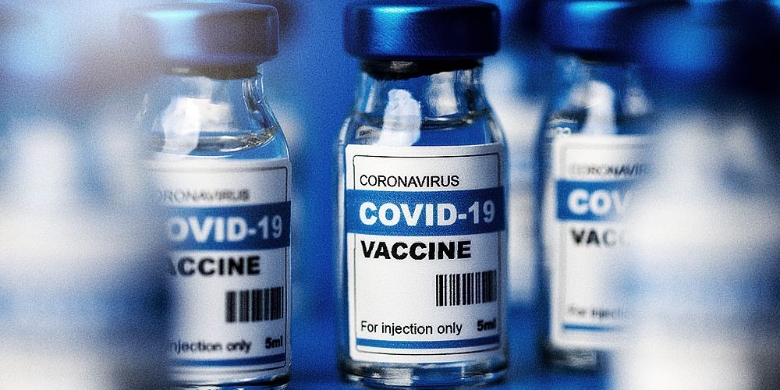In a report that has sent shockwaves through the public health and pharmaceutical sectors, a Florida grand jury convened by Governor Ron DeSantis has laid bare “profound and serious issues” within the U.S. vaccine development and safety surveillance system. While no criminal charges were filed, the findings depict a deeply flawed system marred by conflicts of interest, opaque decision-making, and questionable ethics.
This investigation, initiated in December 2022, aimed to uncover “any and all wrongdoing” related to COVID-19 vaccines. Over a year of probing included document reviews, witness testimonies, and scrutiny of the vaccine production process. The 140-page report reveals systemic failures that have eroded public trust in the pharmaceutical industry and regulatory agencies like the FDA.
The grand jury’s findings point to a troubling pattern of behavior by pharmaceutical companies and regulatory bodies. Most notably, Pfizer failed to disclose adverse events in pregnant women during a pivotal clinical trial. These events were excluded from published studies in the New England Journal of Medicine and only surfaced because of a legal requirement to post trial results on ClinicalTrials.gov.
The FDA also comes under fire for its lax enforcement of marketing restrictions. Moderna’s 2021 ad campaign urging Americans to “protect the team” by getting vaccinated blurred the lines between public health messaging and product advertising. This failure to enforce clear boundaries raises serious questions about the FDA’s impartiality.
Perhaps the most damning revelation involves the so-called “revolving door” between regulatory agencies and the pharmaceutical industry. A 2024 investigation by The BMJ’s senior editor, Peter Doshi, revealed how FDA staff often transition into lucrative industry positions, influencing regulatory decisions from behind the scenes. This cozy relationship undermines the agency’s role as a watchdog and instead positions it as a complicit player in corporate interests.
The grand jury’s report doesn’t stop at identifying problems; it proposes actionable solutions to address the systemic flaws:
- Confront Conflicts of Interest: The public must hold regulators accountable for the revolving door phenomenon, which fosters conflicts of interest.
- Immediate Disclosure of Safety Signals: Vaccine manufacturers should publicly disclose safety concerns as they arise, treating the public as informed stakeholders rather than infantilized bystanders.
- Updated Clinical Trials: Pfizer and Moderna’s COVID-19 vaccines should undergo new trials to address unresolved safety and efficacy questions.
- Ban Direct-to-Consumer Marketing: Prohibit pharmaceutical companies from advertising directly to consumers to avoid manipulative public relations campaigns.
- Anonymized Patient Data: Require companies to release anonymized safety and efficacy data immediately after FDA approval.
- Remove Legal Immunity: Strip companies of legal immunity if they fail to meet transparency standards.
Governor DeSantis echoed the report’s urgency, stating, “The American people deserve transparency on how Big Pharma uses their federal tax dollars. Regulators must act as watchdogs, not cheerleaders.”
The grand jury’s findings arrive amidst a highly polarized national conversation about vaccines. While some hail COVID-19 vaccines as a scientific triumph, others criticize their rapid rollout and the heavy-handed push for universal compliance.
The report carefully navigates these divides, emphasizing that its purpose is not to take sides but to encourage meaningful reform. It highlights the dual realities of vaccines as lifesaving tools and the potential for harm when oversight is inadequate.
“If this Final Report accomplishes nothing else,” the authors write, “we hope it elevates the debate around these nuanced issues and inspires systemic change.”
For many, the grand jury’s revelations confirm long-held concerns about the pharmaceutical industry’s influence and the lack of transparency in vaccine development. The report serves as a blueprint for reform, advocating for greater accountability and ethical governance.
Key among these recommendations is the immediate need to restore public trust. The COVID-19 pandemic has exposed not only vulnerabilities in the healthcare system but also the consequences of prioritizing profit over transparency.
The grand jury’s findings are a wake-up call for policymakers, regulators, and the industry itself. Without substantial changes, public skepticism will only grow, threatening the success of future public health initiatives.
The Florida grand jury’s report is not just an indictment of the past but a warning for the future. As the nation grapples with the lessons of the pandemic, this investigation shines a spotlight on the urgent need for systemic change.
For those who value informed consent and accountability, this report represents a long-overdue reckoning. The time to reform the vaccine development process and regulatory oversight is now. The stakes are too high to allow the status quo to persist.




2 Comments
Squeeze that lemon she’s going to be lemon juice
She shot herself in the foot already not a smart move.